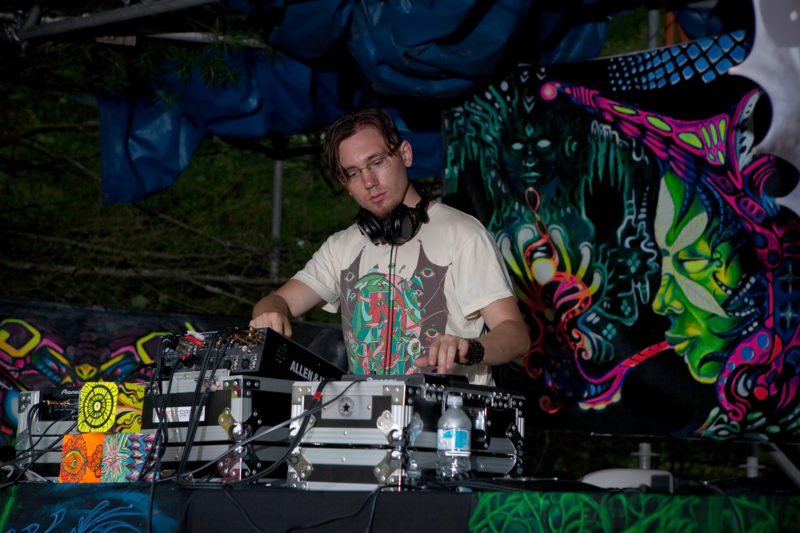
Recently I was interviewed for BeginnerDJ, a great resource for aspiring DJs and newcomers to electronic music. Most of the focus is on DJing but I also share a few words about my work with Ektoplazm.
What made you become a DJ?
It all started by accident. Back in my teenage years most of my friends were swept up in the burgeoning rave moment in Toronto. Buying turntables and learning how to DJ was a participatory aspect of this subculture. I had no real interest in it at first but my friends coaxed me into messing around with the decks at various house parties. Soon I was accompanying them on record buying missions downtown and, once I landed my first real job, I began to amass my own record collection.
I didn’t want to become a DJ and play parties or anything—it was only when the music turned minimal around Y2K that I decided to get halfway serious about it. Even then, it was only to play some of the more colourful and melodic music (now known as old school Goa trance) that I found poorly represented at parties in those days. Before I knew it I was DJing fairly regularly and, with every passing year, I went deeper into it.
Where has DJing taken you?
It has been a wild ride at times but only in the last 3 years have I really begun to travel. I’ve made a lot of really great connections in different parts of North America, particularly in British Columbia. This year I expect I will be playing out even more with many festival bookings this coming summer. Last season most of my bookings were for smaller grassroots festivals, perhaps because I am generally aligned with free music and the Creative Commons. And this is fine by me; I really enjoy visiting new communities and seeing within them echoes of other pockets of this scene. Tribal dance culture is more connected than it knows!
What is your favourite memory from all this?
It’s really hard to say as I’ve had so many different experiences. Certainly I am quite proud of the success of my web site but this is less a memory and more a diffuse sense of general satisfaction and contentedness. I suppose that playing Eclipse last year would qualify as a highlight. Even though it was very early on in the festival there is nothing like playing on such a big sound system and pulling off a really good set. And, further back, I have a very fond memory of playing a night set at an outdoor bush party (Lost Focus Retrieval Project) under a meteor shower on the Niagara Escarpment.
What kind of equipment do you use?
I’ve been playing on CD decks for five years now but hope to transition to laptop DJing soon. CDs are very reliable (when you know how to burn them right, anyway) but creatively limiting compared to what you can now do with software and a controller.
What is your favourite genre to spin?
These days I am really into cutting edge techno on the borderlands of psytrance, minimal, tech house, and progressive. I’ve been playing psytrance for so many years that techno feels extremely revitalizing to me. So much psytrance is overproduced to the point where invasive mixing really detracts from the musical experience. At that point the role of the DJ is to choose tracks and otherwise let the music speak. It is more fun for me to spin music more on the techno side of the spectrum. This is music you can rip apart and reassemble—moreso with the new creative tools DJs can use, but even with a regular CD or vinyl setup there is a lot of room to mess around. I might get back into psytrance eventually, but for now progressive techno is what I am really into spinning. This is reflected in my new project, Drumlore, the record label I founded alongside DJ Lexicon.
Where do you think DJing is going?
The future is looking wide open: expensive equipment is no longer a barrier to entry, music is abundant and easily obtained, and all the formerly obscure technical details are readily available on the Internet. Anyone can become a DJ but it still takes a lot of work to be any good at it. For the pros, new software and technologies promise to blur the boundaries between DJing and live performance. Still, even with all this new technology it is important to remember that the point of DJing is to orchestrate meaningful musical experiences.
What advice would you give to a DJ just starting out?
Skip the physical media and jump straight into digital. Don’t forget to learn the basics—I hear too many new DJs playing tracks out of phase or straight-up trainwrecking without even noticing it. You can’t always rely on software to match tracks perfectly—you need to train your ears to tell the difference between a solid mix and one that is slightly (or even completely) off. Beyond that, be original. Don’t stick to the Beatport charts; that’s boring. Dig deep into music and hear what there is to discover. Blaze your own trail.
How do you find new music?
It has never been easier to find great new music but it does require a significant time investment. Think of it as doing your homework! For techno I regularly scan Beatport and Juno to see what my favourite artists and labels are up to. This accounts for the majority of my purchases but I also like to incorporate fresh material into my sets—and that means making new connections to unfamiliar labels and artists. The best way to accomplish this is to check out tunes listed in top tens or featured on mixes from names you already follow.
What is Ektoplazm and why did you start it?
Ektoplazm is a free music portal and netlabel family incorporating psytrance, techno, and downtempo channels. I started it up to provide artists with a professional alternative to the commercial music industry. It isn’t meant to replace the existing distribution system—I just wanted to give artists a choice. Over the years I have known far too many exceptional artists who have struggled to release their music simply because it did not have a particular bass line or BPM. The psytrance marketplace operates with such tight profit margins that most commercial labels have to be fairly risk-averse to survive—they develop a specific formula and stick to it over the years. End result: many artists making non-standard or unconventional music are shut out, and this isn’t right. I developed Ektoplazm to give these artists a voice. Of course, the site has grown to encompass a wide variety of artists—some of whom have genuine commercial potential—who feel that giving their music away for free is the way of the future.
What sort of response have you received from Ektoplazm?
It has been nothing short of fantastic, growing more each and every year. People really respond to the concept and it shows: Ektoplazm has become one of the top 10 psytrance sites in the world. My mission is to continue improving the quality of the offerings on the site—to raise the standard of free music and really demonstrate what is possible with this different mode of thinking.
What is the future of Ektoplazm?
The release schedule is already looking very busy for 2010 with several albums, EPs, and even a new compilation on the go. I also have some ambitious new features planned but this will have to wait. After all, I am a full-time university student and Ektoplazm is just what I do in my spare time!
Postscript: I edited a few things for clarity and interjected a few comments where appropriate. Things move fast around here—already I have moved on from CDs to a laptop setup for DJing!

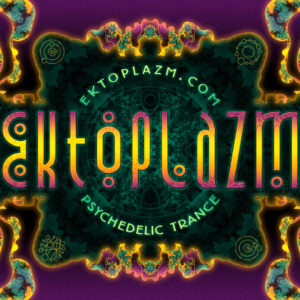

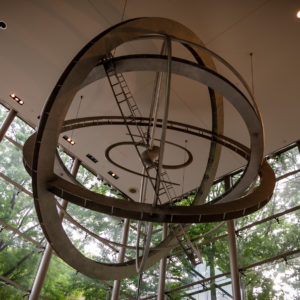


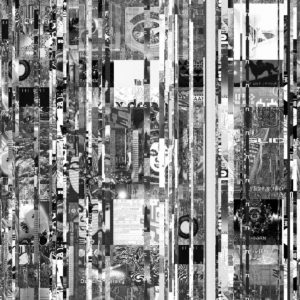
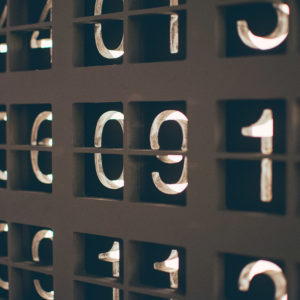
I certainly appreciate Ektoplazm! I’m a software engineer and listen to ambient, downtempo, and psytrance all day while I’m coding. This site keeps me supplied with new tunes! Thanks!
@Isomorph Same here 😉 Slower tunes when I’m designing; faster tunes when coding.
I try to send each trance newbie I meet to this site. It is awesome; have discovered quite a few gems, which
would have remained unknown to me otherwise, through this site.
Thanks (and please keep going) 😀
thank you basilisk for all that hours of joy you bring to us)
respect from psy people of russia.